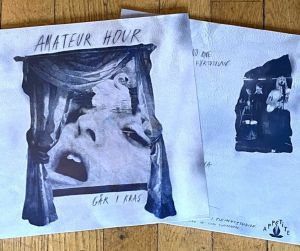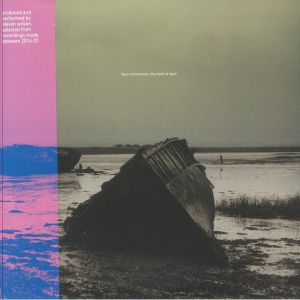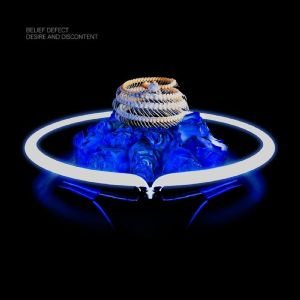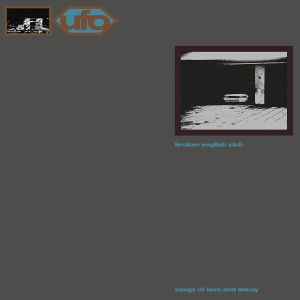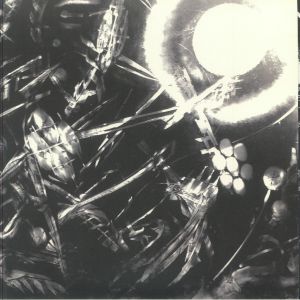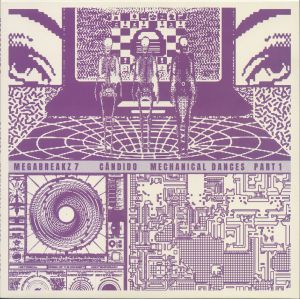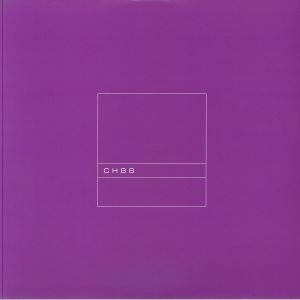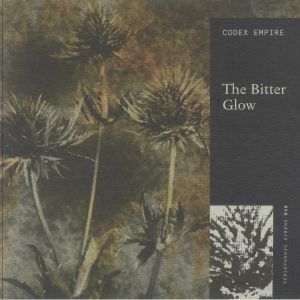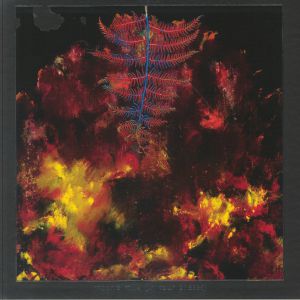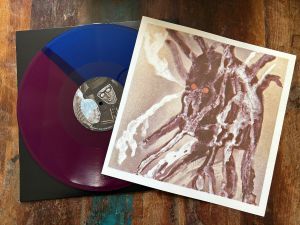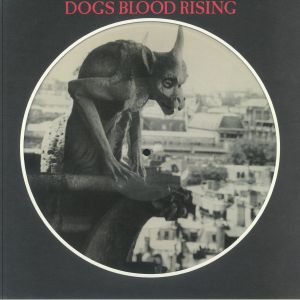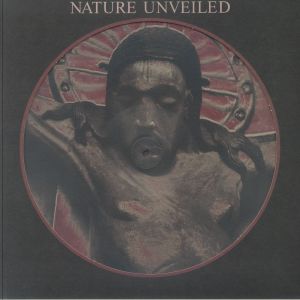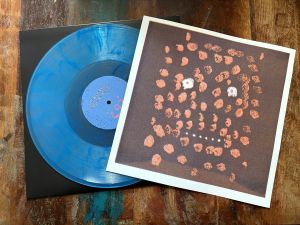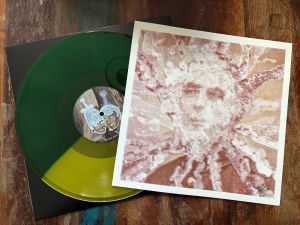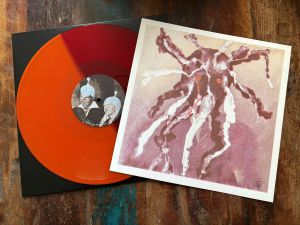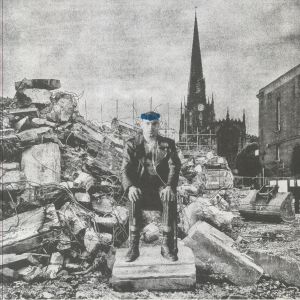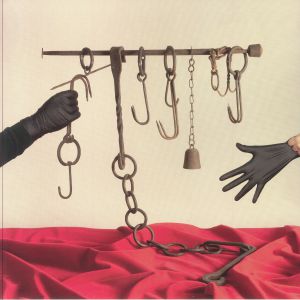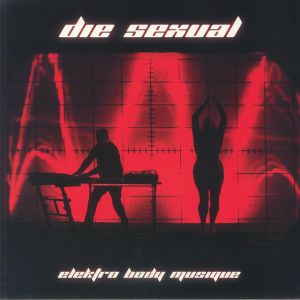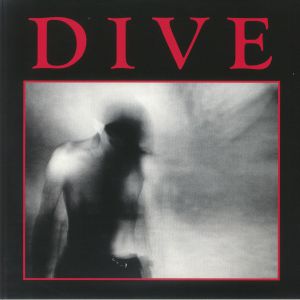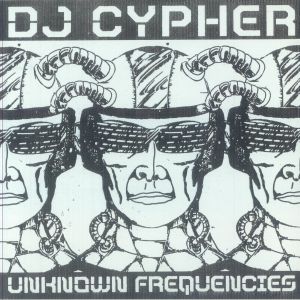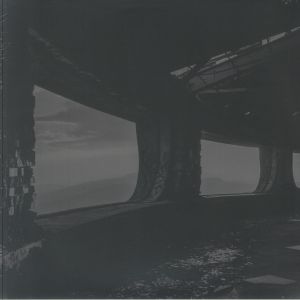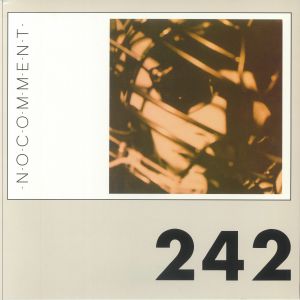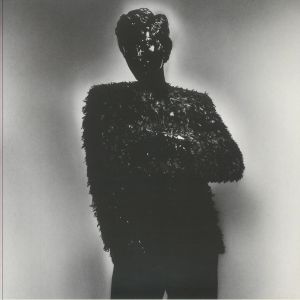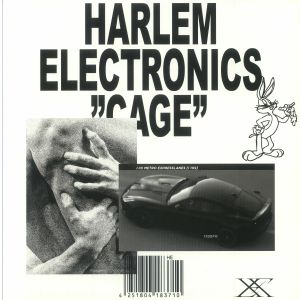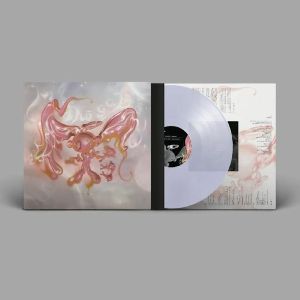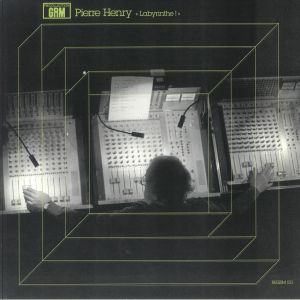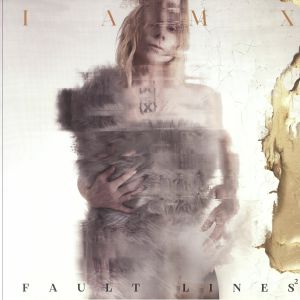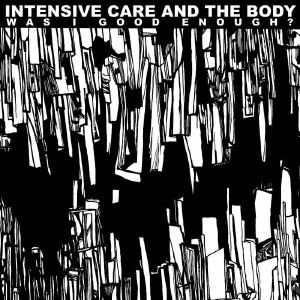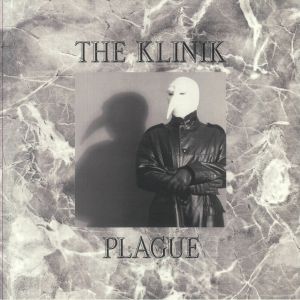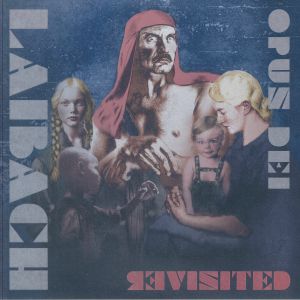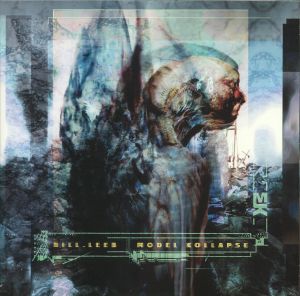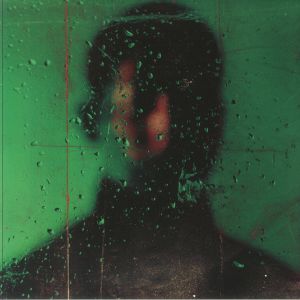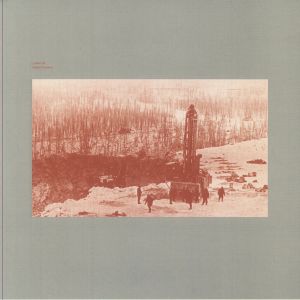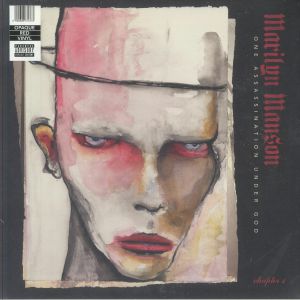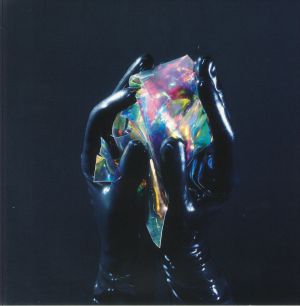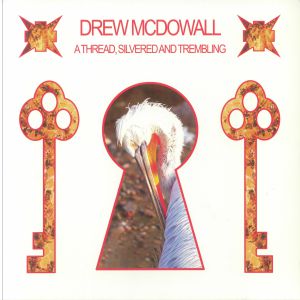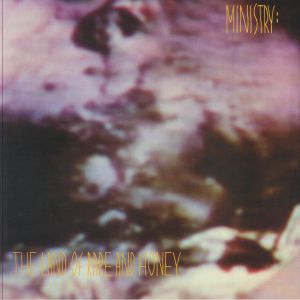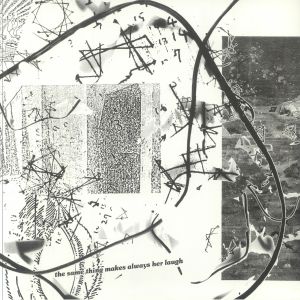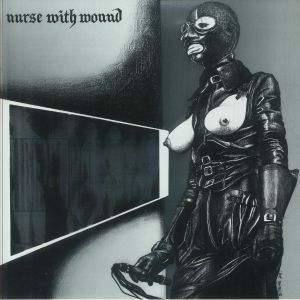Filter
在庫状況
Type
音楽
フォーマット
Release Date
Featured
リリースタイトル
値段
Back catalogue: Industrial/Noise
Juno's full catalogue of Industrial/Noise
アルバム
Review: Gothenburg trio Amateur Hour is Hugo Randulv, Julia Bjernelind and Dan Johansson, and Gar I Kras is their fourth album. It builds on the expansive Krokta Tankar Och Branda Vanor from back in 2022, and though still experimental and out there, it might also be their most accessible and polished work yet. Dreamy lo-fi pop meets gritty electronics and sound collage throughout as damaged linger above humming basslines and grimy guitars underpin detached vocals. It's a haunting but beautiful soundtrack for outsiders who like music from the fringe but that retains a sense of human warmth and soul.
… Read more in stock $31.92
Ghosts In The Machine (purple & pink merge vinyl LP + insert)
Cat: F 029WP. Rel: 12 Aug 24
Review: CyberindustrialEBMwavepost-punkIDMmutantelectro. No commas, no punctuation, just one throbbing, convulsing, dystopian mass informed by the bleakest visions of a sci-fi future we deserve but definitely don't want. Originally hailing from Australia, but long-since relocating to Berlin's eastern ends, Kristian Bahoudian, AKA Kris Baha, has clearly absorbed his surrounds, grown through them, and learnt how to channel that brutalism into something truly potent. It's also narratively driven, with the titular spirits in the system a reference to humans in the age of advanced artificial intelligence - beholden to dictatorial codes that rob us of our essence, vitality and individuality. An awakening among a select few means a small number of people become self-aware, again, and can begin pushing back. And this point of tension, between human and machine, plays out sonically. Talk about painting a vivid picture.
… Read more in stock $24.92
The Itself Of Itself (gatefold 2xLP + booklet with obi-strip)
Cat: LUMB2LP 036. Rel: 19 Dec 24
Review: Selected from a decade of recordings, this release showcases Bass Communion at its most experimental and texturally rich. Tracks are layered with analogue imperfectionsitape hiss, wow and flutter, static noiseithat are transformed into haunting soundscapes. The mellotron, buried beneath layers of imagined rust and dirt, adds an eerie, organic depth to the fragmented drones and spectral noise. The carefully constructed album feels like an excavation of forgotten sonic artefacts, with each piece offering a narrative rooted in decay and texture. Pressed on 2xLP, this is a striking addition to the Bass Communion catalogue, perfect for fans of sonic exploration.
… Read more in stock $26.57
Review: First released in November 2024, Belief Disconnect's Desire & Discontent follows up on the preceding Decadent Yet Depraved, and cements their status as commentators of our times. If last time took a sledgehammer to the monstrous face of a world presenting as one thing but actually something more brutal and savage, this marks our arrival in different time. Masks, like gloves, are off, sides drawn, and the knife edge society and civilisation now rest upon is cast in sharp relief. This is dark, and we mean very, very dark, stuff. It's industrial. Like, super factory-sized industry. Tracks are full of rage. There's the sense that human aspects, a vocal for example, are emanating from solitary confinement somewhere in the depths of a Borg ship. And yet hearing and listening are acts of catharsis - Desire & Discontent is as much about giving us an outlet as it is reflecting a dystopian sci fi narrative which may be on the verge of coming true. Belief Defect certainly seem to think there's a chance, anyway.
… Read more in stock $47.60
Review: William Gibson's Neuromancer celebrates its 40th anniversary and revisiting this seminal work reveals the depth of its world-building and the haunting cultural echoes that resonate with our modern experience. Gibson's vision of a future, envisioned in an era when the internet was just emerging, intertwines optimism with a palpable sense of anxiety. In 1994, to mark the book's tenth anniversary, New York duo Black Rain was invited to create a soundtrack for the audiobook, narrated by Gibson himself. Initially released on a series of cassettes, this project offered a rare insight into Gibson's interpretation of the novel's characters and settings. Following a phase of expansion, core members Stuart Argabright and Shinichi Shimokawa shifted their focus to a more streamlined duo format, leading to innovative studio practices and a unique sonic language. While the audiobook achieved notable success, the soundtrack faded into obscurity, with only a few tracks appearing in compilations. Now, drawing from the original master tapes, this edition encapsulates the atmospheric essence of Neuromancer, crafting an immersive auditory experience that echoes the novel's surreal landscape.
… Read more in stock $35.56
Songs Of Love & Decay (2xLP + MP3 download code)
Cat: DKMNTLUFO 15. Rel: 10 Apr 25
Review: Broken English Club is the alias of techno veteran Oliver Ho and here he explores his signature industrial wave and post-punk sound with unflinching intensity as he lands on Dekmantel's UFO Series with Songs Of Love And Decay. It is a raw, brooding album dedicated to the late Juan Mendez aka Silent Servant with tracks like 'Crawling' and 'Death Cult' echoing his tribal techno roots. 'England Heretic' meanwhile channels eerie synthwave and Giallo vibes and 'Vessel Of Skin' delves into distortion-laced post-punk that contrasts with the stark futurism of 'Pacific Island Kill.' Ho blends cinematic textures with club energy throughout so makes for a dark, emotionally charged tribute that pushes beyond typical boundaries and is sure to resonate in the club.
… Read morePlayed by: Juno Recommends Leftfield, Sandwell District
in stock $28.84
Machine (gatefold red black & white splattered vinyl 2xLP)
Cat: 781676 75791. Rel: 03 Oct 24
Review: Kevin Richard Martin, known for pushing the boundaries of sound as THE BUG, unleashes his latest full-length, Machine. The album, released via Relapse, is his first solo instrumental work under the moniker, following a series of self-released EPs on PRESSURE. Each track is a sonic barrage, merging futuristic dub with crushing electronic elements, heavy bass riffs, and industrial weight that recalls his earlier work with Techno Animal and King Midas Sound. Machine takes the listener on a journey through dense, dystopian soundscapes, where each beat feels like a seismic event, making it perfect for oversized systems in sweat-drenched clubs. Tracks like 'Buried' and 'Bodied' epitomise this, with the former dropping tectonic bass lines over heavyweight beats, while the latter smoulders with industrial doom. Martin's signature "ice cold and dystopian" sound is at its zenith here, blending visceral sub-bass pressure with masterful production. It's a brutal yet nuanced record, one that demands to be felt as much as heard.
… Read morePlayed by: Wes Baggaley
in stock $29.67
Mechanical Dances Part 1 (180 gram magenta vinyl LP limited to 300 copies)
Cat: MEGA 07. Rel: 05 Jul 24
Review: Candido aka. Luis Schiebeler lays down eight darkwave / Italo numbers for Spain's Oraculo Records as part of their extended EPs series - Megabreakz. The seventh addition to the sonic saga is a hearty, circuit-bent dancefloor haunter, marking the 'inaugural chapter of a two-part epic' by Candido, which promises a journey spanning everything from EBM to new beat to rave breaks. Wherever you place 'Mechanical Dances Part 1' on this vast stylistic continuum, the fact remains that Candido's approach to the post-industrial dance form is as psyche-imprinting as it is floor-denting, often nodding to the profound (sometimes dissociative) experiences common to frequenting such a scene. Peppered throughout - if you know where to find them - are repetitive lyrical mantras, alluding to everything from OOB experiences to controversial French psychoanalysts.
… Read more in stock $24.36
Cat: MNQ 159LP. Rel: 11 Jul 24
Review: This enigmatic recording, ahead of its time upon release, features Caroline K's pioneering approach to analog synth music and sample experimentation. Tracks like 'The Happening World' demonstrate her focus on dark ambient and drone music, while 'Animal Lattice' offers a haunting juxtaposition of high and low notes, reminiscent of early Dead Can Dance. 'Between The Spaces' explores a range of atmospheres, from new age to dungeon synth, with ethereal undertones. Caroline K's use of background noises and found sounds adds depth and texture to compositions like 'Leaving,' leaving a lasting impression on listeners. Now Wait For Last Year remains a lasting legacy to Caroline K's innovative spirit and her enduring influence on ambient, dark ambient, and electronic music. This brilliant trip into experimental ambience will impress everyone from soundtrack lovers to those who are into darker electronics.
… Read morePlayed by: Juno Recommends Ambient/Drone
in stock $29.40
Review: CHBB was a project by Beate Bartel and Chris Haas that developed from a collaboration first embarked upon in 1981, while working on the self-titled album Liaisons Dangereuses. After initially releasing their music only on four limited cassettes, this compilation from Soulsheriff flaunts their complete works, including all recordings from the original tapes paired with several new and original tracks by each artist. One can hardly tell the difference between original and new here; from the surreally throat-sung contraltos of 'NBKE' to the jankily strange doubletimes of 'Bali', from the the warbly hypnotisms of 'Shapeshifter' to the womping-kicks-over-German-language-incantations of 'Ima Iki-Mashoo', there's an industrial, experimental treat here for everyone.
… Read more in stock $44.52
Dead Channel Sky (Loser Edition) (gatefold neon pink vinyl 2xLP)
Cat: SP 1575X. Rel: 13 Mar 25
Review: Imagine a world where the pioneers of hip-hop and electro reign supreme, their sounds echoing through the neon-lit streets of a futuristic metropolis. This is the world that Clipping creates, their music a heady blend of gritty beats, razor-sharp rhymes and dystopian soundscapes. 'Dominator' and 'Change the Channel' set the tone with their raw energy and infectious hooks, while 'Run It' and 'Go' showcase the group's lyrical dexterity and knack for crafting intricate rhymes that weave tales of technology, alienation and social unrest. Collaborations with Aesop Rock, Nels Cline and Cartel Madras add further depth and dimension to the album's sonic tapestry, each artist bringing their unique flavour to the mix. Tracks like 'Simple Degradation' and 'Mood Organ' delve into the darker corners of this dystopian world, exploring the anxieties and uncertainties of a future dominated by technology. It's not for the faint of heart, but it is a thrilling ride through a world of futuristic sounds and thought-provoking lyrics.
… Read morePlayed by: Juno Records Staff Picks
in stock $33.58
The Bitter Glow (2xLP + MP3 download code limited to 100 copies)
Cat: PS 030. Rel: 25 Sep 24
Review: For its 30th release, Persephonic Sirens has this arresting new album from Codex Empire across four sides of vinyl. It explores a brave new techno world where dystopian nightmares collide with club-ready grooves and textural synth work defines each track. 'With Fire I Carve' is a blistering sound with nervy, edgy synth tension, 'Alsatia The Lower' is a hard techno monster with screwy synths and flat-footed drums and 'Transient Phantom' is a tunnelling sound with stark sound designs and an atmosphere that is pregnant with darkness and unease.
… Read more in stock $39.48
Moon's Milk (In Four Phases) (reissue) (limited clear-in-red vinyl 3xLP + MP3 download code in slip-case)
Cat: DAIS 188LPC5. Rel: 01 Oct 24
Review: Originally released as a double CD in 2002, Moon's Milk (In Four Phases) is a collection of four EPs Coil issued seasonally in 1998 via their Eskaton imprint. Featuring John Balance, Peter "Sleazy" Christopherson, Drew McDowall, and William Breeze, it was recorded in their Chiswick, London home studio before they relocated to Weston-Super-Mare. This pivotal work has long been considered a high point in Coil's discography, though it was never reissued or pressed on vinyl at the time. Arranged around the equinoxes and solstices, Moon's Milk captures Coil's deep dive into improvisation, ritualistic sound design and mystical atmospheres and stands proud as a testament to their individuality.
… Read morePlayed by: Wes Baggaley
in stock $79.24
Greensleeve Drakon (limited blue & red split coloured vinyl LP + insert)
Cat: DOAR XXXV. Rel: 24 Apr 25
Review: As we hapless reviewers make our way through these five new experimental LPs by Current 93, we cannot help but feel increasing torment and terror at the figures portrayed on the front covers of each record: hand-painted by David Tibet himself (the artist has increasingly indulged such formal solo trend-buckings through his own Cashen's Gap imprint in recent years) they appear like sleep paralytic demons or the ghosts of cancelled English folk yore. All the records are apparently ritually connected to a recent string of live appearances between London and Hastings, and Tibet's penchant for demonologic peerage titles such as GreenSleeve Drakon and Gnostic Sketch - blurring a sense of self-referentiality and occult otherworldliness - leave us bewildered and slack-jawed.
… Read more in stock $26.04
Dogs Blood Rising (reissue) (picture disc LP in die-cut sleeve)
Cat: DOAR XVI. Rel: 29 Aug 24
Review: Embarking on a series of new Current 93 reissues via his own label Cashen's Gap, David Tibet here reminisces on the very second LP to be released under the moniker, Dogs Blood Rising. Said to have been "reeling in the weeks - which felt like years - after my first Current 93 album, I had started on the difficult second album" (Dogs Blood Rising) after "having been asked to appear on both Top Of The Pops and The Old Grey Whistle Test 93 times in the same week". Cult mythologising aside, this five-track sonic gorgonesquerie is a fantastic primer in early occult industrial music, leading on the iconoclastic canto 'Christus Christus' and ending on the chamber-effected monologue 'St. Peters Keys All Bloody'. The songs cast implicit scorn on the popular imaginaria that insist that heaven and hell are divided; Tibet is keen to collapse them into one, devising a new sonic eschatology all unto his own.
… Read more in stock $28.56
Nature Unveiled (reissue) (picture disc LP in die-cut sleeve)
Cat: DOAR XVIII. Rel: 29 Aug 24
Review: The reissue of Current 93's Nature Unveiled brings back an iconic album that first captivated listeners with its avant-garde sound. This album features two striking tracks: 'Ach Golgotha (Maldoror Is Dead)' and 'The Mystical Body Of Christ In Chorazaim (The Great In The Small).' 'Ach Golgotha (Maldoror Is Dead)' stands out as an irreverent celebration of orthodox liturgical rites, inspired by the demon Maldoror, a creation of French poet Lautreamont. This track, with its dark and mystical aura, reflects the early influences on Tibet, including the magician Aleister Crowley. Fans appreciate the eerie and otherworldly appeal of this piece, which retains its power and impact decades later. 'The Mystical Body Of Christ In Chorazaim (The Great In The Small)' complements the first track with its own haunting soundscapes. The album's ability to transport listeners to a realm of fantastic nightmares underscores Current 93's lasting influence in the experimental music scene. Pressed on picture disc, this version is extra special for collectors who look for unique music and packaging.
… Read more in stock $28.56
Dawn Yawns (limited translucent blue marbled vinyl LP + insert)
Cat: DOAR XXXII. Rel: 24 Apr 25
Review: Dawn Yawns is one of five new 12" records released at the same time, documenting one or two - if not more - furtive live sets performed by Current 93 (David Tibet) between London and Hastings in early 2025. On this quintet of new transmissions, dream and daylight are heard in grisly merger, on the back of an umbral awakening from a polar slumber, where the blood moon never sets, known to C93 fans only as the "Menstrual Night". Be warned, however, these eerie recordings have a sure capacity to mark the soul in unprecedented ways.
… Read more in stock $26.04
May Be Skeletal Rainbow (limited translucent green & yellow split coloured vinyl LP + insert)
Cat: DOAR XXXIV. Rel: 24 Apr 25
Review: Another of five LPs by Current 93 (David Tibet) through his own audio-esoterica label Cashen's Gap, this brilliant yellow and green hued LP nods to the universally recognised colour of earth-ground wire, and comes in the wake of a recent two part set of "channellings" (live performances) in both London and Hastings. As ever, Tibet steers the dream ship through surreal poetics and creaking soundscapes, and offers us a risograph print of his artwork, titled MayBe Skeletal RainBow, or perhaps Building The RainBow PainBow Preparing For Menstrual Night (we're not sure).
… Read more in stock $26.04
As Real As Scarecrows (limited red & orange vinyl LP + autographed art print)
Cat: DOAR XXXIII. Rel: 24 Apr 25
Review: English experimental group, Current 93, was founded in 1982 by David Tibet and set out to explore industrial music with abrasive tape loops, droning noises and distorted vocals. As Real As ScareCrows is a haunting new chapter in Tibet's arcane vision, and it was released alongside four other LPs to mark recent Channellings in London and Hastings. Ritualistic and esoteric, the album feels like a spectral transmission or "ScareCrow scaring crows away after Menstrual Night," as Tibet describes it. It's a deeply unsettling and bleakly poetic work that is unmistakably C93 in its mood and mystique. Each copy includes a signed risograph print of Tibet's painting, making it as much an art object as a musical release. A beautifully eerie offering from one of Britain's most enduring and enigmatic cult acts.
… Read more in stock $26.04
Moony Tunes (limited transparent red & black marbled vinyl LP + autographed art print)
Cat: DOAR XXXI. Rel: 24 Apr 25
Review: Moony Tunes is one of five new 12" LPs recently unveiled by David Tibet aka. Current 93, mad witch doctor of the post-80s industrial continuum. An ever-morphing project, Current 93 always implies motifs of apocalyptic folk, dream logic, and esoteric revelations, and this volume, subtitled Preparing To Sleep In Menstrual Night, feels like a whispered dispatch from the edge of sleep and symbol. True to C93's nature, it resists easy description, lullabying eerily through hoveringly attentive drones and spellcasting vocals. Each pressing includes a riso print of Tibet's painting Moony Toons, hand-signed in pencil, thus hand-stamping an album best received as a kind of ritual, and shaped by the occult aurae of Tibet's performances in London and Hastings earlier this year.
… Read more in stock $26.04
Love Is A Flame In The Dark (LP + insert + MP3 download code)
Cat: LSSN 094. Rel: 30 Oct 24
Review: Karl D'Silva's debut album, Love Is A Flame In The Dark, is an evocative exploration of sound that challenges conventional boundaries. Over two years of recording, D'Silva has created a compelling landscape where industrial grit meets tender melodies. Self-recorded in Rotherham and meticulously mixed in Leeds by Ross Halden, this album stands as a testament to D'Silva's ability to craft a distinctive pop language rooted in a post-industrial ethos. The album resonates with a sense of urgency and raw emotional depth. Drawing from influences as varied as Cabaret Voltaire and Nine Inch Nails, D'Silva's music is a fusion of inventive sound design and earnestness. Tracks like 'Wild Kiss' showcase thunderous percussion intertwined with D'Silva's commanding voice, while 'Flowers Start To Cry' marries aggressive drum programming with a haunting falsetto, evoking comparisons to Nine Inch Nails' visceral production style but with a unique, personal twist. Throughout Love Is A Flame In The Dark, D'Silva's versatility is evident. 'On The Outside' offers a soundscape of synths and saxophone, echoing the adventurous spirit of late 60s Free Jazz. 'Entropy' stands out with its expansive synth pop, while 'Nowhere Left To Run' weaves a narrative of light emerging from darkness with its midi-string orchestration. D'Silva's voice, a soulful rasp from his early medical history, imbues the music with a fearless yet tender quality. This album captures a journey from darkness into light, reflecting D'Silva's profound connection to his craft and the emotional weight of his experiences.
… Read more in stock $24.63
Review: Formed in Barcelona's underground scene, the Italian-Catalan duo Silvia Konstance and Viktor Lux Crux aka Dame Area blend industrial-tribal rhythms with minimalist synths while drawing inspiration from avant-garde pioneers like Esplendor Geometrico, Suicide, and Einsturzende Neubauten. This highly anticipated fourth album, Toda la verdad sobre Dame Area ("The Whole Truth About Dame Area") marks a more aggressive, percussion-driven sound and a departure from the melody-focused album they dropped back in 2022. The dynamic live performances the pair are down for are distilled into an album that perfectly captures their experimental edge with unpredictable rhythms, metallic percussion and plenty of energy.
… Read more in stock $27.16
Elektro Body Musique (hand-numbered black & red vinyl LP + insert + MP3 download code limited to 300 copies)
Cat: PYLON 55. Rel: 17 Mar 25
Review: Die Sexual exist in the world of Adult, of Gary Numan on a night out at Kit Kat Club, Cabaret hedonism, phallic and yonic electronic beats, rhythms and other noises. Elektro Body Musique, the title a play on electronic body music, or EBM to the cool kids, takes the bull by the horn with savage, hyper-lascivious futurist club music that makes you feel like the voyeur and objectifier in equal measure. 11 tracks owe as much to dystopian cold wave as electroclash and synth pop, basslines warbling and bouncing beneath blunt instrument kick drums and savage key stabs, all topped with the kind of energy-inducing snares we often worry were left in the glory days of these sounds. Immediately dark, alluring, and suggestive, it's a strong case for giving in to temptation.
… Read more in stock $47.88
Review: Formed in Belgium in 1990 by Dirk Ivens - known to some from Absolute Body Control Clinic, Blok 57, and Sonar - Dive have never been known for taking prisoners. Read anything about the band online and you'll likely stumble upon at least one or two references to their 'audio trademark', namely "abused drums", and this certainly sets the tone for what's in store once you press play on anything that has come from the project over the past 34 years. Misleadingly Dive's second album, First Album is actually the self-titled debut, which landed in 1990, and some bonus materials added to complete the aural image. Distortion, vocal strain, the sound of machinery searching for human survivors in a post-apocalyptic battleground, walls of white noise and the sound of atoms deconstructing, alongside darker, more sinister and tense moods, it's as uncompromising now as it was then.
… Read more in stock $42.55
Review: DJ Cypher pops up on our radar for the first time here and the indelible mark he makes too. This new album is visceral and coruscated electro funk with dark low ends and ripping acid lines all making it a high-impact assault on your senses. 'Freetwo' in particular is devilishly potent and textured. 'Second Voice' is a barrage of kinetic drum programming and throbbing bass and 'Freeone' is a silky, lithe workout with slamming hits and alien bass energy. Brilliant stuff.
… Read more in stock $36.94
I Am The Dirt Under Your Fingernails (reissue) (limited 2xLP)
Cat: FD2LP 142. Rel: 12 Dec 24
Review: This reissued album from Justin K. Broadrick follows the sold-out 2022 CD release from Fourth Dimension Records. Since 1983, Broadrick has worked under the Final moniker, evolving from power electronics to a more expansive yet still intense sound over the years. This record features nine tracks all named and numbered after the title and they delve into murky textures, crepuscular guitars, harsh noise and dissonant bursts. The relentless, unforgiving sound captures anger and despair and prove Broadrick's ability to transform early power electronics into contemporary, boundary-pushing forms with deeper emotional resonance.
… Read more in stock $24.92
Review: Front 242 are reissuing five timeless classics on stunning crystal-clear vinyl, with their 1982 debut Geography standing as a particularly seminal record in electronic music history. This influential album played a crucial role in the development of industrial and EBM music throughout the 80s and beyond, forming the foundational sound that defined Front 242. The reissue offers fans a chance to experience the album's groundbreaking tracks anew, appreciating the enduring legacy of this iconic band.
… Read more in stock $31.35
No Comment (heavyweight milky clear vinyl 12")
Cat: AMLP 1424. Rel: 07 Jun 24
Review: Front 242's decision to re-release No Comment in partnership with Alfa Matrix is a testament to their influential status in electronic music. Originally released in 1984, the album marked a significant moment for the band as they solidified their lineup and began to attract a devoted following. The remastered version by Daniel B. allows listeners to experience the album's innovative and unmatched sound in the best audio quality possible. No Comment was a early example of Front 242's high-tech, hard-edged electronic punk dance music, establishing them as leaders of the emerging electronic body music movement. Front 242's commitment to pushing the boundaries of sound and technology is evident throughout the album. Their cold, synthetic brand of electronic dance music became their signature sound, influencing electronic music for decades to come.
… Read morePlayed by: Juno Recommends Leftfield
in stock $29.40
Aurora (10th Anniversary Edition) (gatefold transparent red vinyl LP + poster + MP3 download code)
Cat: XSTUMM 368. Rel: 10 Oct 24
Flex
Nolan
The Teeth Behind The Kisses
Secant
Diphenyl Oxalate
Venter
No Sorrowing
Sola Fide
A Single Point Of Blinding Light
Review: Ben Frost's Aurora has inherited a rare, lucky crowning achievement: it's one of those "introductory" records - touted by new ambient music neophytes online - used to initiate rookies into the so-called true ordinances of real taste. Divesting ourselves of this knowledge for a hot second, we prefer to draw attention to the fact that Aurora has reached another milestone: its tenth anniversary. Frost, the renowned Iceland-based Australian composer, crafted a tense yet glacial record back in 2014: Aurora's implicit takeaway seems to be the that to explore a polar land isn't a far cry from the act of exploring another planet; little context is grafted onto the sheer, real cold sound of the record, though the references are tentative if obvious: 'Nolan' and 'No Sorrowing' allude to "epic" cinema imagism - the lost causes and "no, go on without me" moments native to the seat-edge nailbiter soundtracks of survival flicks - whilst the utter dystonia of 'Diphenyl oxalate' lends a chemical influence, recalling a harrowing, cliff-edge SOS scenario aided only by the dim glimmer of glowsticks and flares, brandished by hazmat-suited heroes, lost, stranded far from the research station. Frost now shares a limited edition red vinyl edition here, limited to just 300 copies and including alternative artwork as well as an exclusive download of his blistering 2014 live performance of the record, at Berlin's Berghain.
… Read more in stock $28.56
Review: Gesaffelstein's fourth album, GAMMA, marks a departure from his previous work, embracing camp over cool. With influences ranging from seventies electro-punk to synth-pop, the album is a riot of overdriven synth-pop and vintage rock'n'roll. Singer Yan Wagner's oily baritone adds depth, channeling Dave Gahan's toughness with a humorous twist. The album's eccentricity shines through in Wagner's deranged lyrics and unpredictable delivery, injecting humor and unpredictability into the mix. Tracks like 'The Urge' and 'Hysteria' showcase Gesaffelstein's knack for crafting sharp hooks and infectious grooves. Clocking in at concise lengths, each track contributes to the album's charm, focusing on thrusting hips and sharpened hooks rather than lofty concepts. GAMMA is a refreshing departure from Gesaffelstein's previous sound and a exciting new direction.
… Read morePlayed by: Juno Recommends Leftfield
in stock $26.60
Review: Harlem, the Stockholm-based duo, return with an eight-track exploration of dark, pulsating electronics. Drawing on influences ranging from King Tubby's dub to Robert Hood's minimal techno, they craft a sound that defies easy categorisation. Echoing the no wave dissonance of early ESG and the industrial edge of Cabaret Voltaire, they fuse these disparate elements into a potent sonic cocktail. 'Shut Your Body' opens with a muscular intensity reminiscent of Nitzer Ebb, its driving rhythms and gritty textures setting the stage. 'Fantasy Scan' picks up the pace, a dancefloor-ready jam that recalls Underground Resistance's hypnotic grooves. 'Blow By Blow' channels a nihilistic energy, its sparse arrangement and spoken-word vocals evoking the cold wave sounds of Kas Product. The B-side continues the sonic exploration with 'Dummy Up', a track that evokes the frenetic energy of a cult gathering, its electro and body influences recalling the darker side of the 80s underground. 'Sleuth' takes a more introspective turn, its repetitive grind suggesting a relentless search for the unknown. 'Contact High' brings back the seductive energy, its dancefloor-ready rhythms and infectious melodies reminiscent of early Detroit techno. The album closes with 'Wiggle Walker', a melancholic track that suggests a journey into the unknown. Harlem's music is a thrilling ride through a landscape of sonic extremes, a sonic experience that is both exhilarating and unsettling. Visceral but thought-provoking, this is a potent blend of genres and influences that defies expectations.
… Read morePlayed by: Juno Recommends Electro
in stock $28.28
Mahogakko ("lilac smoke" marbled vinyl LP + insert + MP3 download code limited to 200 copies)
Cat: BF 140. Rel: 15 Aug 24
Review: IDM powerhouse and still-fresh Brainfeeder signee Hakushi Hasegawa returns with Mahogakko, the latest mindmelter to paint the perpetually morphogenic work of art that is their... ahem... music. Once again, this is a broad set of bad-apple, black MIDI-influenced compositions, all of which push the sonic limit to the floating point of timeline-breaking cacophony, verging on sugar-rushing ideasthetic noise. Imagine an alternate universe of techno-faeries all aflutter in some forest grotto out of conscious sight; despite meaning well and maintaining a vivid glee, this pixie-hive's demeanour defaults to a wild, puckish, erratic and swarming fever, to the point of grave danger for the human visitant. We hold this image firmly in mind, as it concurs with the news of Hasegawa's recent grand gestural face reveal, after which interpretations of their music will never be the same. A thoroughly dynamic record, Hasegawa is unafraid of the contrast between loud and quiet, in a totally singular fashion that bucks the expectation usually laid at the feet of electronica artists. Every sound here, from 'Boy's Texture' to 'Forbidden Thing (Kimmotsu)', is as machine-elven, fidgeting and hyperrealistic as would be expected, yet also unexpected, of today's zeitgeist, that of TikTok-dancing phantasmagorias and disgust-threshold broaching cute slime aesthetics. Everything is so crisp and glossy that the sonic metal deployed in its making sound to have far surpassed their liquidus points, not long before having been strained into a kind of magick philtrum set aside for the braving of fatal fairy realms and fatal fairy realms alone.
… Read more in stock $26.86
Labyrinthe! (reissue) (gatefold 2xLP + MP3 download code in debossed sleeve)
Cat: REGRM 031LP. Rel: 31 Oct 24
Review: Labyrinthe! stands as a singular achievement in Pierre Henry's illustrious career, showcasing his ability to craft music even when deprived of his usual sonic resources. The sounds for this piece were supplied by GRM collaborators, each bringing their own unique qualities and textures. Despite not being his own material, Henry's distinct voice and musical vision quickly come to the forefront. Through this intricate soundscape, Henry constructs a maze of audio, focusing intently on the development and manipulation of the sounds provided. His clarity of purpose and deliberate approach is evident throughout, as he shapes the contributions of others into something unmistakably his own. The piece is built upon the interplay of disparate elements, all meticulously woven together into a cohesive sonic journey. Henry described Labyrinthe! as a collaborative venture, a fusion of 58 sound fragments from seven different composers, forming a work that feels both expansive and tightly intertwined. His harmonic sensitivity ensures that the diverse sources never clash but instead create a complex, interlocking sound world. Labyrinthe! is a brilliant testament to Henry's mastery of electroacoustic composition and his remarkable ability to turn limitations into creative triumphs.
… Read more in stock $33.58
Fault Lines 2 (LP + insert + MP3 download code)
Cat: 198168 969205. Rel: 29 Aug 24
Review: IAMX is Chris Corner's solo project, which can be traced back to 2004, around the time his former band, Sneaker Pimps, went on hiatus. Spanning multiple genres, from burlesque-hued dark cabaret to electronic rock and unbridled dance music, there have now been eight studio albums, two remix records, two live albums and two experimental albums released under the moniker. Fault Lines² is among the finest in that oeuvre, and the most recent. Fresh for 2024, this collection of work paints a vivid picture of the artist - at times unsettling and slightly eerie, in other moments melancholic-yet-euphoric, it's dramatic, theatrical, innovative and strangely teetering on the brink of traditional and more explorative schools of sound. Probably not something you'll hear much like again this month.
… Read more in stock $15.67
Was I Good Enough? (silver vinyl LP + insert in spot-varnished sleeve)
Cat: CCAS 1311. Rel: 17 Apr 25
Review: Rhode Island post-metal avant-garde duo The Body have made a name for themselves due to their caustic maelstrom of harsh, brutalist experimentalism as well as their prolific output and collaborative nature, releasing collab albums with the likes of Full Of Hell, Thou, Uniform, and most recently, Dis Fig. Their latest endeavour sees the pair link up with another duo of musical extremity, Toronto, Canada's recently reformed industrial two-piece Intensive Care. Was I Good Enough? has been on the cards since the artists first began making plans as far back as 2018, trading, warping and ruining mutual sessions with layers of loops, distortion, samples and even dubs, constantly striving to find the ideal haunting balance between both of their sonically hideous, oppressive worlds. For all of our ears' sakes, they just might have succeeded.
… Read more in stock $22.39
Review: Beaming into the future from the 1980s Belgian EBM scene, The Klinik (now reduced to two core members Marc Verhaeghen and Mark Burghgraeve) are a pivotal force. They helped found the underground, all while influencing a generation of EBM artists both locally and internationally. ‘Pain And Pleasure’ was their first blush, first released as an EP on Antler Records in 1986. Now recovered and “album-ified”, it takes on a new form as a full-length LP elongation, retitled Plague & Pain And Pleasure. With a new sado-leathered, plague doctoral, marble vinyl aesthetic, this is an electrifyingly chalky expansion pack taking after the original three-tracker, and which proves again the dark efficacy of their gluttonous, motoric overwhelmer sound, evidenced on the likes of ‘World Domination’, ‘Go Back’ and ‘Outside’.
… Read more in stock $36.94
Review: Laibach and A/political present Alamut, a new, symphonic album inspired by Vladimir Bartol's 1938 novel of the same name. Recounting an 11th-century Persian tale - centered on the charismatic and enigmatic Hassan-i Sabbah, leader of the Nizari Ismailis and founder of the Order of Assassins - this is a shadowy, ninja-black-wax initiation into an esoteric order of spies. Laibach's work blends classical Persian poetry, minimalist orchestral textures, and industrial elements, reflecting both historical propaganda tactics and Bartol's critique of rising Fascism in 1930s Italy. Released on double vinyl and CD box set through Mute, the album was recorded in 2022 at a former Crusader castle in Ljubljana; it features the RTV Slovenia Symphony Orchestra, Tehran's Human-Voice Ensemble, the Gallina Women's Choir, and the women's accordion orchestra AccordiOna, conducted by Navid Goharib.
… Read more in stock $32.20
Review: Laibach has announced the release of Opus Dei Revisited, a newly reworked version of their seminal 1987 album. This project features two distinct versions of the original work. The first disc showcases a complete reimagining of the tracks, developed during the band's ongoing Opus Dei Revisited tour. The second disc includes fresh remixes by Rico Conning, who produced the original album, allowing him to reinterpret the source material while preserving key elements. Opus Dei was Laibach's first release with Mute Records, propelling them into international recognition and spotlighting their unique sound. The album includes Leben heiBt Leben, a German-language adaptation of Opus' Live is Life, which will again be featured on this release. Formed in 1980 in the industrial town of Trbovlje, Slovenia, Laibach's provocative performances and imagery have earned them a reputation as one of Eastern Europe's most influential collectives. Opus Dei Revisited promises to challenge perceptions and expectations, echoing the band's relentless pursuit of artistic innovation.
… Read more in stock $28.56
Model Kollapse (limited gatefold 'bleach' grey marbled vinyl 2xLP + MP3 download code)
Cat: 782388 136617. Rel: 12 Sep 24
Review: Bill Leeb is the Vancouver-based musician and mastermind behind electro-industrial scene mainstays Front Line Assembly and ambient-pop duo Delerium, as well as a key member of recording projects such as Noise Unit, Intermix and Cyberaktif. The first solo venture by Leeb takes the form of Model Kollapse: a mutative electro-metal odyssey of shocking proportions. Firmly footed in the 80s industrial zeitgeist while still bringing an ear to the sound that could've only been brought to it in the present era, the likes of 'Demons' and 'Terror Forms' are incredible retromorphoses, with heavy EBM and techno production shunning any hint of over-simplicity; precision editing, multiband attentiveness, and controlled caprice, all conjuring images of a seedy but frenetic future Cronenbergian or Gigerian rave, as the old human models collapse all around us.
… Read more in stock $61.59
Review: The respected DIY hero Xin Lie's reputation has spread far from his native Bangdung in the Indonesian province of West Java - and this eight track debut album will no doubt add to his international repute even further. Electronica is one of the hardest genres in which to forge an original, distinctive path but Lie does it here effortlessly, from the juddering bass-driven half speed groover 'Parat' and the frenetic, polymetric rhythmic riddle that is 'Ngalengkah', to the tribal percussiveness meets mangled robotics of 'Papait Nu Amis', it never settles into accepted ways of doing things, constantly challenging you to keep up. "Perhaps it's best imagined as the soundtrack to a multi-sensory art installation," Lie suggests, "or a performance staged not in a gallery but in an unassuming house down your street." Fine. Or just a really compelling record, you could equally argue.
… Read more in stock $31.08
Review: Lundin Oil's latest effort is nothing if not powerful and, at times, intimidating. It's also rooted in an important message. People, by nature, have a habit of deducing things about each other. Or thinking they've deduced, when in reality they've assumed and presumed. Underneath the industrial mechanisms at the centre of these soundscapes, then, there's something vulnerable and human. It's challenging stuff, but also reassuring to be back in this particular experimental fold, with Exploit Divisions the first Lundin Oil album we've had since 2016. While fitting precisely into the back catalogue, you also can't help feel that this is up there with the broadest sonic palette painted by the artist yet. Spanning razor sharp, jagged rhythms and wider, more patient ambient refrains.
… Read more in stock $25.20
Antichrist In Buenos Aires: Radio Broadcast Argentina 1997 (picture disc LP)
Cat: EEE 82320. Rel: 22 Oct 24
Review: Argentinian crowds are probably the most exciting to play to in the world. And Marilyn Manson at this time had just released his Trent Reznor-produced masterpiece LP Antichrist Superstar and was at the peak of his game, so to say a ticket to this show at the Velez Sarsfield stadium in Buenos Aires was hot property is an understatement. This is about as good as heavy metal rock n' roll gets and not many will come close to the thrills that a 90s Marilyn Manson show brought. The setlist is monumental, with singles from Antichrist Superstar such as industrial metal banger 'The Beautiful People' and 'Tourniquet', which sounds like the blueprint to the nu-metal boom that was to come, among the highlights. Unusually for a live album, it's taut, with the track list limited to 11 songs, but this is for good reason. In a moment of Spinal Tap-esque horror, shortly after the final track you hear on the album, the band's drummer Ginger Fish received an electric shock whilst playing and the show ended abruptly. Putting his body on the line like that to deliver this blistering set is an heroic deed and it's a fantastic consolation to have this show fossilised onto vinyl.
… Read more in stock $30.80
One Assassination Under God: Chapter 1 (pink & blue splattered vinyl LP + booklet)
Cat: 406562 9734206. Rel: 06 Feb 25
Review: The somewhat surprising return and attempt at redemption from the industrial metal shock-rocker Marilyn Manson has been a bold pill to swallow, with the once iconic provocateur seeking to avoid the many allegations and numerous controversies he has garnered over the last decade. Attending rehab and becoming fully sober over the past few years has seen dramatic weight loss, a notably more lowkey public demeanour and a newly signed record deal with Nuclear Blast (having been dropped by Loma Vista not long after 2020's We Are Chaos) turn a few heads, simultaneously cautious and curious as to the authenticity of this humble arc. With lawsuits recently thrown out, the court of public opinion appears to be the only form of due process that shall occur, leaving it to individual listeners to make up their mind as to the merit of the artist as a person. As to the art itself, One Assassination Under God: Chapter 1 is the 12th album to adorn the name Marilyn Manson, and it's his best since 2000's Holy Wood. Tapping Chelsea Wolfe collaborator/producer Tyler Bates to oversee the entire project has helped to create a generational bridge between how out of sync Manson himself had become with his own artistic strengths and audience desire, and Bates' insider knowledge as a younger fan first, collaborator second. Together they rediscover the core industrialist menace, gothic romanticism and hedonistic nihilism that kept listeners hooked after the initial shock of aesthetic would cease, but for the first time in decades, it feels earnest and earned rather than forced. Boasting Antichrist Superstar style buzzsaw synths and chug-heavy breakdowns on cuts such as 'Nod If You Understand', while the self-deprecating admission of using drugs to hide behind monstrous flaws on the gloomy balladry of 'As Sick As The Secrets Within' harks back to the most fragile moments of Mechanical Albums. Be it a cynical cashgrab or attempt to regain fan adoration, or the genuine musings of a tortured artist finally learning to face his own demons head on, there's simply no denying that this is Manson at his most potent, intimate and focused, begging the question of how different of a career trajectory and latter day output might we have had if the man had learned to look inward long before hitting the bottom.
… Read more in stock $30.22
One Assassination Under God: Chapter 1 (red vinyl LP)
Cat: 406562 9731373. Rel: 21 Nov 24
Review: Returning with his first full-length since 2020's David Bowie-indebted We Are Chaos, while more notably marking the industrial metal goth icon's return to the spotlight following a series of troubling allegations that seemingly appear to now hang in limbo, One Assassination Under God: Chapter 1 shall serve as the 12th full-length studio endeavour from Marilyn Manson. Co-produced with frequent Chelsea Wolfe collaborator and film scorer Tyler Bates, the material boasts some of the most synth-laden, new wave winking and direct metallic rock bangers the mercurial yet questionable figure has dropped in almost two decades, making for a sonic victory lap of sorts as Manson attempts to rebuild his brand and aesthetic.
… Read more in stock $29.67
Enchanted By The Muse (limited trancslucent magenta vinyl LP)
Cat: VEYL 041. Rel: 30 Jul 24
Review: Italian-born, Berlin-based. These details alone are enough to mark Velvet May out as a product of location. Italy has long-been obsessed with a distorted futurism, musically at least, with a slew of hugely respected noise pioneers calling the country home, particularly in northern areas around Torino. Meanwhile, Germany's capital is all about those dystopian aesthetics and technophile attitude. Fusing together industrial, rock, and electronic in a visceral, mechanical, human-trapped-in-machine amalgamation of sound, the grit of production lines meets the unbridled raw energy of punk, the sex droid seduction of electroclash steaming headfirst into the forward momentum of techno. It's angry, frustrated, perhaps even desperate, voices calling out from behind wires and controllers. Yet, in other moments ('Haven of Thrill', for example) it's positively life-affirming and, dare it be said, owes something to the euphoria of rave.
… Read more in stock $24.63
A Thread Silvered & Trembling (LP + MP3 download code)
Cat: DAIS 221LP. Rel: 30 May 24
Review: Drew McDowall's latest album, A Thread, Silvered and Trembling, is an exploration of electronic processing and traditional Scottish pibroch music. Co-produced with Randall Dunn, the album features a dynamic orchestral ensemble arranged by Brent Arnold, creating an eclectic and transcending sonic experience. The album's four pieces move between shrouded electronics and enigmatic orchestration, surging into elegant crescendos and evoking deep animism. Tracks like 'Out of Strength Comes Sweetness' and 'And Lions Will Sing with Joy' feature keening strings and disorienting drones, while 'In Wound and Water' sways with eerie cello undertones and lush layers of electronics. The album reaches its climactic peak with A Dream of a Cartographic Membrane Dissolves, where processed voices and grand orchestral stabs converge to create a haunting and cathartic finale. Throughout, McDowall's music explores themes of sacredness and profanity, creating a journey that lingers long after the music fades. A Thread, Silvered and Trembling is a testament to McDowall's ability to blend traditional influences with experimental electronic soundscapes, resulting in a thought-provoking work.
… Read morePlayed by: Wes Baggaley
in stock $25.48
Circular Reference (limited white red splattered & translucent black white splattered vinyl 2xLP + insert in spot varnished sleeve)
Cat: NOHL 4. Rel: 01 Aug 24
Review: Masami Akita, known as Merzbow, continues his sonic exploration with 'Circular Reference,' his latest release and debut on No Holiday. Renowned as a pioneer of extreme noise, Akita unleashes a torrent of synthesised tones intermingled with layers of feedback and midrange noise, creating an intense listening experience. Despite the relentless intensity, the album also offers moments of lurching rhythms and uneasy calm, characteristic of Merzbow's distinctive style. With over 500 recordings since 1980, Merzbow remains a seminal figure in noise music, drawing inspiration from diverse influences including progressive rock, heavy metal, and dadaism. The name 'Merzbow' itself pays homage to Kurt Schwitters' Merzbau, reflecting Akita's fascination with found objects and avant-garde aesthetics. Circular Reference promising to impress long time fans while making some new ones along the way. Amplify the experience by playing it loud, and experience Akita's latest impact on experimental music.
… Read more in stock $47.02
The Land Of Rape & Honey (Deluxe Edition) (limited 180 gram vinyl 2xLP + insert (indie exclusive))
Cat: R 1726509. Rel: 09 Oct 24
Review: Ministry's The Land of Rape and Honey is a pivotal release in both the band's discography and the evolution of industrial music. This genre-defining album marked their shift from synthpop to industrial metal, characterised by distorted guitars, pounding beats, and aggressive, sample-rich compositions. The deluxe edition enhances this landmark with iconic tracks like 'Stigmata', 'The Missing;, and the haunting title track, along with exclusive remixes and extended cuts. Tracks like 'The Missing' and 'Deity' highlight the album's metal edge, blending thrash aggression with industrial elements. 'Golden Dawn' introduces a dark, ritualistic tone with samples from occult sources, showcasing Ministry's skill in merging industrial and post-industrial aesthetics. Songs like 'Destruction' and 'Hizbollah' expand the sonic palette with chaotic percussion and Middle Eastern influences. The title track, despite its controversial samples, reinforces the band's anti-fascist stance with its militaristic atmosphere. Closing with 'Abortive', the album offers a reflective end to its intense journey. The Land of Rape and Honey stands as a crucial bridge between early industrial soundscapes and the metal-influenced industrial of the 90s.
… Read more in stock $38.07
The Same Thing Always Makes Her Laugh (LP + insert limited to 199 copies)
Cat: ARTEFAKT 02. Rel: 06 Feb 25
Review: Kiyoshi Mizutani is a cult hero to noise fans. The Merzbow co-founder is celebrated by them for his unique approach to sound which finds him building immersive worlds that blend noise, field recordings and abstract textures. he Same Thing Makes Always Her Laugh is a brilliant experimental album recorded in 1989 and a perfect primer for those new to his work. It manipulates everyday sounds into something deeply atmospheric and evocative and while rooted in the avant-garde, it maintains an emotional depth that sets it apart. A truly boundary-pushing work of noise art.
… Read more in stock $23.24
Chance Meeting On A Dissecting Table Of A Sewing Machine & An Umbrella (reissue) (numbered gatefold black & silver vinyl LP limited to 300 copies)
Cat: ROTOR 084C. Rel: 25 Sep 24
Review: When the now defunct British music magazine Sounds took on Nurse With Wound's startling debut album, Chance Meeting On A Dissecting Table of Sewing Machines & An Umbrella, the critic decided to abandon the usual star rating. Instead, they awarded the record a 'maximum' five questions marks - ????? - nodding to the fact it's very difficult to know how to engage with it, let alone describe it. Since then, Chance Meeting has been reappraised and lauded by many, with FACT considering this among the Top 50 Albums of the 1970s. It's a wild ride, even if at times the 'noise' is actually more disquiet than anything else. Crackling, fuzzy, plucked, echoed, reverberated, refrained and made with a breadth of textures that go beyond most other listening experiences, this is a priceless and rare example of music as a tool of genuine, bold sonic exploration.
… Read more in stock $47.60

 USD
USD





